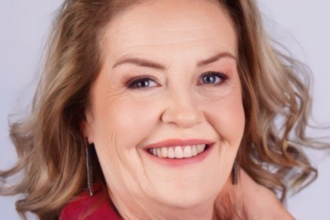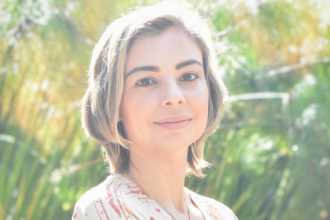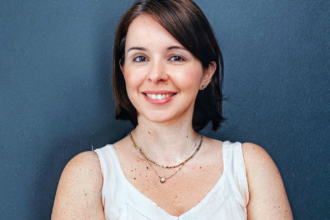Telma Romão Maia, the writer behind “Somos Girassóis”, uses the trajectory of these flowers as a metaphor to explore resilience in the face of challenges in life. In this book, the author presents light, everyday prose, highlighting that the true essence of human existence lies in ordinary moments.
Addressing themes such as aging, reflections on mortality and the complexity of femininity, the work delves into universal experiences connected to individual issues, always valuing poetry and lightness to make everyday life more meaningful. “Somos Girassóis” is the result of Telma’s transition from an advertising career to poetry, consolidating her commitment to enriching readers’ daily lives with literature that mirrors real life.
The title of your book, “Somos Girassóis”, is a metaphor with sunflowers. Can you share the meaning behind this metaphor?
I was in a field of sunflowers and I was struck by their beauty and their movement together in search of sunlight. I believe that, like sunflowers, we should always seek the light, turning our backs on the shadows. It’s not that we will ignore the dark side, we learn from it, but the focus must be on the light and warmth that warms our daily hopes and dreams.
His work seems to highlight the importance of finding happiness in everyday life. Can you tell us how this perspective influenced the creation of the book?
I believe that our life should be guided by the search for constant growth, the forces and lights that help us walk. For me, poetry has always brought touches of lightness to everyday life, just like art, cinema… This perspective brought me to “we are sunflowers”, it is always present in my writing.
You address universal themes, such as aging and reflections on death. How do these topics connect to your own experience and the human experience in general?
Telma Romão Maia: The exercise of thinking about the aging process and death as “real life” prevents us from walking alienated, not that it will make us sad, but understanding that it is the natural process of life, which is part of facing it head on and continue in the best way possible.
In your book, you mention your relationship with Goiás. How has your homeland influenced your writing and your worldview?
I was born in Minas Gerais, but arrived in Goiás when I was 6 months old. My parents were from the Northeast and coexistence between miners was always intense, because Goiás has many miners in its background. So I consider myself this mixture of spices, and my love for Goiás grew naturally, as if I was born from Goiás, I love everything, from cooking to literature made in Goiás. All this beauty feeds my soul and my poetry.
Poetry can play a fundamental role in our daily lives. How do you believe poetry can add “lightness” to our routine?
The magic of poetry is between the lines, in the unprecedented. Words “touch” feelings, try to translate them, but, at the same time, preserve the mystery. And it is this mystery that makes lightness, goes beyond philosophical or psychological analyses, brings subtle touches to the soul.

In your book “Somos Girassóis”, you make references to Cora Coralina and Chico Buarque, two iconic names in Brazilian culture. How have these artists influenced your own poetic and literary journey?
I love all the work of Cora Coralina and Chico Buarque. These are two very strong references for me. I’m in love with countless of her poems and his song lyrics. At 10, 11 years old, I liked playing with rhymes and metrics, I had a poem published in the school newspaper, I always wrote. And Cora and Chico awakened me with the way they translate emotions, at that time it was a way of talking to this phase of whirlwind feelings, translating myself. At that time, poetry became part of me. I’m writing short stories and chronicles, but poetry is my essence! Writing for me is a pure pleasure! About life, everyday life, love, friendship, travel… finding magic in the everyday details of our lives.
You decided to dedicate yourself to literary production after more than two decades in the advertising market. How did this transition occur and in what ways did your previous experience influence your approach to writing?
Yes. I finished a cycle in advertising, I made great friends and I always liked working in agencies, I found the environment relaxed and dynamic, I identified with everything that involves the advertising market, I like creation and monitoring production. But I believe I came full circle when one of my biggest clients started to be served by a large agency in São Paulo. I decided to dedicate myself fully to writing, and Cora was also, in this aspect, an inspiration. She published her first book at age 75. and I thought that 55 was a good age to, as she said in a poem, start over… “recreate your life always, always. Removes rocks and plants rose bushes and makes sweets. Restart”. Age 55 was, for me, a symbolic number for my fresh start.
You maintain an Instagram profile (@viagemnapoesia) to share everyday thoughts and poetic texts. How has social media influenced your interaction with your readers and your outlook on writing?
I like the immediate response that social media brings and being with other people who have the same tune. I learn there every day, it’s also a pleasurable exercise, like “exchanging stickers”, a game from my childhood, lol. I also love the comments, understanding how each poem “arrives” and touches the other.
His work promotes the idea of finding happiness in the details of everyday life. Can you share a personal experience where you found great meaning in a seemingly ordinary moment?
Yes. When I visited the sunflower field and lavender fields on a trip to France. Contact with nature always brings me “resignifications” and inspires me. I was recently in the interior of Minas Gerais and my husband and I took a waterfall bath, in a beautiful waterfall, in the Canastra region. These experiences go into an archive of precious memories, they are pure poetry, food for the soul!
FollowTelma Romão Maia inInstagram
*WithRegina Soares





